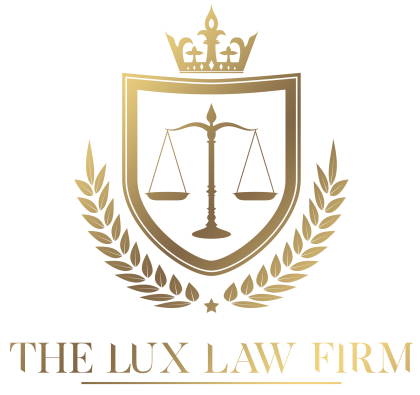What Effect Could Infractions Occurring at School Have on a Juvenile’s Criminal Record?
School-related incidents can have a significant impact on juvenile crime cases, often serving as a gateway into the juvenile justice system. When disciplinary issues at school escalate or involve law enforcement, students may face criminal charges that can have lasting consequences. If your child has been arrested or charged with a crime due to an event occurring at school, it’s vital to seek the assistance of a knowledgeable Colorado Springs juvenile defense lawyer who can guide you through the legal landscape and advocate for your child’s best interests throughout the proceedings.
How Can an Incident at School End in Criminal Charges?
School disciplinary actions can sometimes result in minor behavioral issues becoming criminal matters. For example, defiance or disruptive behavior may lead to charges like harassment or assault if physical contact occurs. School resource officers may become involved in the incident, and low-level infractions that might have once resulted in detention or suspension are now more likely to lead to arrests and involvement with the juvenile justice system. Unfortunately, this system can create a “school-to-prison pipeline” where students, particularly those with learning disabilities or from marginalized communities, face a higher risk of entering the juvenile justice system.
Incidents at school that could potentially lead to juvenile criminal charges include:
- Physical or verbal altercations
- Property damage or vandalism
- Marijuana or other drug violations
- Weapon possession
- Other school code of conduct violations
- Harassment or bullying, both in-person or online
How Has the Increased Presence of Law Enforcement in Schools Led to More Minors Facing Charges?
Many Colorado schools have added or increased the police presence on their campuses in recent years to effectively handle serious incidents and provide greater protection to their students. However, daily interactions between students and school resource officers can quickly escalate, potentially resulting in arrests for actions that may have previously been handled through school disciplinary procedures. The increased contact with law enforcement at school heightens the chances of students with behavioral issues becoming involved in the state’s legal system, which can have long-lasting negative effects on their future prospects.
What Are the Possible Consequences of a Juvenile Court Conviction?
As stated in C.R.S. 19-2.5-101, Colorado’s juvenile justice system aims to hold young offenders accountable for their harmful acts while supporting their rehabilitation so they can become productive members of society. Unlike the adult system, which emphasizes punishment, the juvenile system is supposed to focus on what’s best for the child’s development and future. However, the penalties for a juvenile conviction can still be severe and potentially life-altering.
For most juvenile offenses, sentences are built around restorative processes like diversion programs, probation, community service, and mandatory counseling or treatment. More serious cases may result in detention at a juvenile facility for up to two years or even up to seven years for the most severe offenses. In extreme cases involving violent felonies, juveniles as young as 12 may be tried as adults in criminal court, facing much harsher adult sentences.
The long-term impacts of a juvenile conviction can extend well into adulthood. The stigma of an arrest can affect an individual’s reputation for years after the offense. Even though juvenile records are often eligible for sealing or expungement after the individual turns 18, they may still be accessible in certain circumstances. Having a criminal record may create significant obstacles in finding employment, obtaining professional licenses, or securing housing. A juvenile conviction for an incident that occurred at school may also lead to educational setbacks, including suspension or expulsion, reduced likelihood of graduation and college enrollment, and limited access to financial aid.
How Does the Juvenile Justice System Sometimes Fail Students Already Encountering Challenges?
It’s crucial to recognize that many behavioral issues in school stem from underlying problems such as learning disabilities, mental health disorders, or trauma. Instead of addressing these root causes, punitive measures imposed by juvenile courts may push students further away from educational engagement and increase their likelihood of future delinquent behavior. By removing youth from their educational environments and often failing to provide adequate academic support during incarceration, the juvenile justice system can deepen the educational gaps and social challenges these students already face. A legal representative can help ensure the court understands the youth’s circumstances and can fight for outcomes that promote their well-being and protect their prospects.
Why is Consulting a Defense Attorney Crucial?
Navigating the juvenile justice system can be confusing for minors and parents alike, as it operates differently than the adult criminal justice system. An experienced juvenile crimes defense attorney can play a vital role in protecting a minor’s rights when facing charges stemming from school-related incidents. A skilled attorney can work to have charges reduced or dismissed. They can also advocate for less-punitive alternative sentencing options that may help the minor address issues that led to the incident, providing them with essential skills and assistance that could prevent recidivism and improve their lives. If the charges are severe, a lawyer can take steps to attempt to keep the case in juvenile court rather than having it transferred to adult criminal court, where much harsher penalties can result.
How Can Our Law Firm Help You and Your Child?
In the worst-case scenario, school-related incidents can end up setting young people on a path toward long-term involvement with the criminal justice system. While the juvenile justice system aims for rehabilitation, the adverse effects of a conviction can still be severe and long-lasting. However, a careful legal approach to juvenile charges may help prevent the creation of a criminal record and provide your child with the best chance at a successful future. Contact The Lux Law Firm today at 719-451-7469 to schedule a free consultation to speak with a skilled criminal defense lawyer.





